K-12 Online Vendors
As explained in Keeping Pace with K-12 Online Learning report – 2015 (KpK12) an education vendor is an umbrella term used for a fairly wide variety and complex fabric of companies and organizations that serve the K–12 education industry, particularly as it applies to digital learning.
According to National Education Policy Center (NEPC) in 2013-14, there was over 2 million students taking supplemental online course; 447 full-time virtual schools enrolled close to 262,000 students. Eighty-seven blended schools enrolled 26,155 students. Thirty-three states had full-time virtual schools and 16 states had blended schools. There were two states that had blended but not full-time virtual schools (New Jersey and Rhode Island).
Types of Education Vendors
- Education publishers
- Content providers and developers
- Learning management systems (LMS)/learning platform companies
- Student information system (SIS) companies
- Education/charter management organizations
- Professional development companies
The large majority of education companies in the digital learning arena are typically identified as one of these company categories. Companies do not always identify themselves as a “content provider,” for example, but more often might say they are a provider of innovative online and blended learning solutions. Other than education materials, digital content, and other instructional items that are created within schools, by their own teachers and staffs, virtually all other education technology and related content and tools come from this large cadre of companies—mostly for-profit companies, but some are nonprofit (KpK12).![]()
Education Publishers
Most companies with this moniker were long time traditional textbook and education materials publishers that have expanded into offering a wide variety of digital content, tools and related products and services. A primary motivation for these publishers to enter into the digital learning products and services arena has been to sustain and expand their companies as the demand for print instructional materials declines and the demand for digital content and tools increases; as in the “shift to digital” movement. The largest of these publishers have products and services in virtually every category, including in a few cases owning their own schools. Most of the notable publishers are well over 100 years old—Pearson was founded in 1844.
Content Providers
Content providers, also referred to as content developers, are in the business of creating and delivering original instructional content, like a publisher. But most companies referred to as content providers – rather than publishers – started their company from the outset to create and deliver digital content. As such most of these companies have started within the last 20 years, with a handful (e.g. PLATO/Edmonton) having roots going back over 50 years. Some focus only on content, but many surround digital content with other products and services. Often, for example, a content provider will develop its own learning platform or adaptive learning software, in which it embeds content.
LMS and Learning Platform Companies
In the early years of online learning, the systems used were usually called course management systems. This was for good reason, because their purpose was to manage course syllabi so students could launch courses and communicate with their teachers. Not to diminish these early systems, online learning could not have flourished as it did without these early pioneers. Over time, however, most of these have evolved into learning platforms that provide a wide range of features to enhance the learning experience, and hence have become known as learning management systems – and learning platforms. A divergence in product philosophy by various vendors has taken many of these products in different directions, such as:
- Adaptive learning,
- Data analytics,
- Social collaboration, and
- Parent and mentor communication
Student Information Systems (SIS)
Student information systems companies have been the backbone of the education software industry since there were computers and software. In the early days – meaning the mid-1960s – computer and software companies created a robust business across America developing custom student information and administrative software systems for schools and universities. There were no off-the-shelf applications then—for any applications. But these early systems evolved into standard products that today are applications integrating many aspects of a school’s or district’s information systems environment.
Education/Charter Management Organizations
Education Management Organizations and Charter Management Organizations. Education management organizations (EMOs), and charter management organizations (CMOs) are companies and organizations that provide “whole-school operation” services to public school agencies. There are a large number of companies and organizations in this business. Some CMOs/EMOs are divisions within larger, multi-divisional companies. They manage traditional K–12 public schools on behalf of a school district (“contract schools”) or manage charter schools as the charter holder (“charter schools”) or under contract with the charter holder (“contract charters”).
![]() This group of organizations is a very significant portion of the full-time online learning activity is in charter schools, particularly those managed by CMOs. Many notable EMOs and CMOs are for-profit companies; most, however, are nonprofits. In an effort to keep state and local control, nonprofit CMOs are increasingly being created at the local level.
This group of organizations is a very significant portion of the full-time online learning activity is in charter schools, particularly those managed by CMOs. Many notable EMOs and CMOs are for-profit companies; most, however, are nonprofits. In an effort to keep state and local control, nonprofit CMOs are increasingly being created at the local level.
Although only 44.4% of the full-time virtual schools were operated by private education management organizations (EMOs), they accounted for 74.4% of all enrollments. Virtual schools operated by for-profit EMOs enrolled an average 1,027 students. In contrast, those operated by non-profit EMOs enrolled an average 286 students, and public virtual schools operating independently enrolled an average 266 students (NEPC).
Private EMOs are playing less of a role in the blended sector. Of blended schools, 62.8% are independent (involving no private EMO), while 20.9% are operated by non-profit EMOs and 16.3% are operated by for-profit EMOs. Generally, blended schools have fewer students per school than virtual schools. Blended schools enroll an average of 305 students, whereas virtual schools enroll an average of 577 students (NEPC).
Professional Development Companies
The professional development (PD) industry is estimated at a current annual spend rate of around $3.9 billion in the United States. The overwhelmingly large percentage of this number is made up of internal school, district and state agency expense in developing and/or delivering its own PD, mostly labor expense. A lesser, but significant, portion of PD is provided by companies and organizations that offer PD products and training services to schools and districts. A fair amount of professional development associated with the online and digital learning products is provided directly by the companies who make digital learning products, but a growing number of focused PD companies are filling a needed gap in digital learning, particularly in the areas of new school teaching and learning models, such as blended learning and competency-based learning.
Vendor Products and Services for Online and Digital Learning
In 2014-15 there were over 3 million individual online course enrollments provided directly or indirectly by vendors to schools directly and via intermediate delivery channels and over 2 million students who took online courses provided by vendors.
In some cases, the products and services provided by digital learning vendors may be evident based on the name or company type, but a significant n![]() umber of these companies provide a more extensive array of products and services in order to provide comprehensive solutions to schools. A few of the very largest companies provide almost all of the products and services.
umber of these companies provide a more extensive array of products and services in order to provide comprehensive solutions to schools. A few of the very largest companies provide almost all of the products and services.
It is often true that the more comprehensive a solution, covering a broad gamut of products and services, the easier it is for a school or district to implement and successfully operate online and digital learning programs, relieving it from the challenges of working with a larger number of vendors, and having to integrate multiple products into a unified student learning experience.
Types of Vendor Products and Services
Instructional management & tracking
- Learning management systems (LMS)
- Learning platforms
- Adaptive learning
- Data analytics
Instructional content
- Full online & blended curricula
- Individual courses Lessons & exercises
- Assessments
Services
- Professional development
- Online course teachers
- Customization
- Implementation
Tools to manage student data & admin
- Student information system (SIS)
- Classroom management
- Registration
Connections Academy
Founded in 2001 and based in Baltimore, Maryland, Connections Academy, is a division of Connections Education, LLC, which is owned by the UK-based, publicly traded Pearson PLC. Connections Education is a leading provider of high-quality, highly accountable online education solutions for schools, school districts, and students in grades K–12. Tuition free, It serves families and schools with a variety of digital learning and online school solutions including Connections Academy, International Connections Academy, and Pearson Connexus.
In 2016, Connections Education brings full-time online and blended school to 65,000 students across the U.S. and abroad, and delivers online courses to over 340,000 students. In total, over 400,000 students in the U.S. and 48 countries will receive online learning from Connections Education in 2016. Regularly recognized for its outstanding curriculum and leadership, Connections Education is committed to expanding quality education through technology, and helping students achieve both academic and personal success.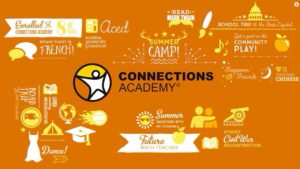
History – In the Spring of 2001, Sylvan Ventures started a separate business unit to create a virtual school program. The company first began providing online school services to two schools in the Fall of 2002. In September 2004, Connections Academy was sold to an investor group led by Apollo Management, L.P. The company now operates public schools under management contracts from charter schools or school districts. A new corporate entity called Connections Education was established in early 2011. In this same year, on September 15, 2011, Pearson, an international learning company, acquired Connections Education for in excess of $400 million.
Connections Education consists of two education-focused divisions including Connections Academy and Pearson Online & Blended Learning that serves educational institutions and other organizations with online learning solutions.
Awards
- USDLA “Outstanding Leadership in the Field of Distance Learning” 2016 awarded to Amada Ebel, Executive Director, South Carolina Connections Academy
- Ohio Connections Academy recognized with a 2015 Momentum Award by Ohio State Board of Education, 2016
- Indiana Connections Academy Recognized for Counseling Program, 2015
- Lea Ann Lockard, Executive Director of Texas Connections Academy @ Houston, EdTech Leadership Award, 2016
- Patricia Hoge, Connections Education Executive Vice President of Curriculum and Instruction and Chief Academic Officer, USDLA Award for Outstanding Leadership by an Individual in the Field of Distance Learning, 2015
- Connections Education Named “Top Workplace” by The Baltimore Sun for third consecutive year, 2015
- Connections Education Awarded Renewed AdvancED Accreditation, 2015
- Connections Education’s Connexus® education management system, GradPoint, and education technology online learning courses Win Tech&Learning Award of Excellence for Best Upgraded Products, 2015
- Connections Education Wins Three BESSIE Awards for Exemplary Educational Software, 2015
- Connections Education Middle School Art Wins CODiE Award—Honored in Best Arts & Creativity Solution category, 2015
THE VIRTUAL EDUCATION – THE ONLINE SCHOOL EXPERIENCE
The Foundation of a Great Education – Connections Academy is a fully accredited program that combines the best online and offline resources from leading educational publishers and curriculum specialists to deliver comprehensive, high-quality K–12 online education. With the best resources at their fingertips, Connections Academy students explore and master all required core subjects: language arts, mathematics, science, and social studies.
Experience Education Like Never Before – We share a common goal with parents: to ensure that students become productive, successful, and confident adults. We help students develop pathways to that success by building on their individual strengths and interests in an online setting that is both safe and connected to a larger community.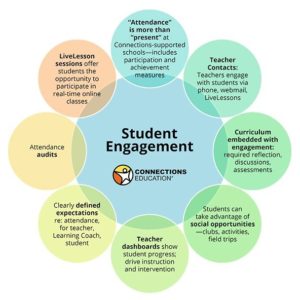 We know that a great education doesn’t have to take place in a classroom. It’s about personalized attention and connections—between teachers and students, parents and teachers, and students and their peers. And when students, families, and staff work together as a community, it gives students all the tools they need to reach their goals. Below are a few of the driving forces behind this unique approach:
We know that a great education doesn’t have to take place in a classroom. It’s about personalized attention and connections—between teachers and students, parents and teachers, and students and their peers. And when students, families, and staff work together as a community, it gives students all the tools they need to reach their goals. Below are a few of the driving forces behind this unique approach:
Free Online Education, Outstanding Curriculum – At Connections Academy, students receive a great public education at no charge. There are no materials fees and no tuition charges. The courses meet and exceed all national and state standards while also integrating the best texts, materials, and resources available to create a curriculum that keeps students engaged in new and creative ways.
CURRICULUM
Only the Finest Materials – Curriculum experts review and select the best texts and teaching materials from leading publishers to create units, lessons, and activities. The Connections Academy multimedia team works closely with these experts to create interactive tools and resources that get students involved in learning. Teachlet ® tutorials and learning games combine graphics, video, and audio to bring ideas and concepts to life.
Always Improving – At Connections Academy, the curriculum is evaluated and revised regularly. This ensures that it delivers the most effective content and aligns with state and national standards. As part of this ongoing review, students and parents are asked to rate each lesson on a five-star scale. After nearly four million evaluations, Connections Academy has received an average lesson rating of 4.2 out of 5 stars.
A 21st Century Online Curriculum for 21st Century Success – Our online curriculum is a highly effective alternative to a traditional public or homeschool curriculum. It’s designed to help students gain the knowledge and thinking skills they’ll need for life, work, and higher education. At each grade level, structured lessons are blended with self-paced learning to ensure that each student reaches his or her full potential. These courses also develop skills in the important “four Cs” of 21 st century learning:
- Critical thinking and problem solving
- Communication
- Creativity and innovation
- Collaboration
Exciting Electives – Electives are a key part of the well-rounded online school curriculum at Connections Academy. These stimulating K–12 online courses cover a wide range of subjects such as world languages, game design, home life, sign language, and more. Electives allow students to broaden their skills and explore new interests and talents.
Curriculum Built for Success – Education should help prepare students for work, college, and life. And at the foundation of a good education, you’ll find a strong curriculum.
Over the past twelve years, we have developed, tested, and refined the Connections Academy curriculum to ensure that it meets national and state standards as well as those set by leading educational organizations. Most importantly, our online curriculum is designed to meet the diverse needs of our students.
But the work doesn’t stop there. We’re committed to continuous improvement, reviewing and revising our curriculum regularly. As part of this ongoing review, we ask students and parents in the Connections Academy community to rate each lesson on a five-star scale.
Online Curriculum Development Experts – We have a team of experts dedicated to the design, evaluation, and improvement of our free online school curriculum. With classroom teaching experience, subject matter expertise, and advanced degrees in instructional design, curriculum development, and technology education, the team is dedicated to developing a high-quality online curriculum that delivers real results.
They start by identifying the skills and objectives students need to learn. Then they create lessons to help students practice and develop those skills, along with assessments to measure their progress along the way. That way, Connections Academy students don’t just learn a subject—they master it.
Bringing Lessons to Life – Our curriculum development team works with our talented in-house videographers, graphic designers, and computer programmers to bring the curriculum to life in a multidimensional way. They also review and select the best texts and instructional materials from leading publishers to weave into units, lessons, and activities. Then, we deliver these high-quality resources right to each student’s home.
The resulting curriculum engages students in individual study as well as collaboration with their classmates. As a result, students learn to think independently and to work together.
Hundreds of Proven Online Courses – The Connections Academy curriculum includes core courses in math, science, language arts/English, and social studies for every grade. Electives are also offered at every grade level, allowing students to broaden their skills and explore new interests. Our electives cover a wide range of subjects such as world languages, music, game design, digital arts, sign language, and more. We also offer Gifted and Talented, Honors, and AP™ courses.*
EXCEPTIONAL K–12 TEACHERS
The teachers are the foundation of the Connections Academy experience. They are talented, passionate, certified, and specially trained to excel in online teaching. Connections Academy teachers are drawn to virtual schools because they care about kids and believe that personalized one-on-one instruction really works.
Individual Attention – Each and every student has unique abilities, and all students perform better when they receive individual attention in a safe, nurturing environment. We call our individualized approach Personalized Performance Learning. Using this method, teachers get to know the learning style, skills, and interests of each student so they can give every student the best opportunity to excel. Our approach also allows students to accelerate learning in areas of strength or receive extra attention in areas of weakness.
Parent-Supported Online Learning – When parents take an active role in education, students prosper. As Learning Coaches, parents can be closely involved in their children’s daily education. They’re able to see real progress every day and work with dedicated teachers to keep their students on track. Parents say this involvement is one of the most gratifying aspects of the program.
Socialization, Community, and Friendships – Learning online doesn’t mean learning alone. Even in a virtual setting, students meet regularly in online LiveLesson ® sessions and have opportunities to share ideas, compare experiences, and have fun learning together. There are even chances to attend in-person gatherings, activities, and field trips. And for those students who want to pursue and explore other extracurricular activities outside of Connections Academy or through Connections Academy’s clubs, the flexibility of the program allows plenty of opportunities for those, too!
EXPERIENCE VIRTUAL SCHOOL TECHNOLOGY
Imagine the possibilities of an accredited public education delivered directly to you through online learning technology. Connections Academy expands the definition of the classroom to include just about anywhere you go. All you need is an Internet connection!
Easy-to-Use Technology – Connections Academy’s user-friendly system, Connexus ®, lets students access a welcoming and collaborative learning experience anywhere they have an Internet connection. Parents love how easy it is to schedule lessons and access grades, too!
At Connections Academy, we believe educational technology works best when it makes learning more relatable, meaningful, and fun. That’s why we develop many of our own engaging virtual tools and resources. The advanced virtual school technology used in this program delivers a quality public education straight to your home or other location. With proprietary interactive web tools, online lesson plans and instruction, our own internal email, secure community message boards, and more. Connections Academy:
- Creates a virtual classroom experience where teachers and students work together in a supportive environment
- Connects students, teachers, and the entire Connections Academy community to one another
- Guides students through a rigorous curriculum that meets all state requirements and
- individual students’ learning needs
Connexus®—Your New Home Base – Connexus is the online engine that makes learning at Connections Academy possible. At home or wherever the Internet is accessible, this user-friendly online education management system connects students with their lessons, teachers, and a wide range of educational resources. See for yourself how Connections Academy brings the classroom to you!
Experience how you’ll use Connexus
- Choose from an extensive list of online sample lessons to see how our technology engages students in learning
- Choose from our elementary school sample lessons, middle school sample lessons, or high school sample lessons
- Experience Connections Academy’s LiveLesson®sessions—live instruction conducted online
Technology Support Services – Connections Academy’s technology support staff members have an expansive knowledge of computer technology and Connexus®, the education management system. They will help you to troubleshoot any problems you are having with Connexus. The support team members also have remote diagnostic tools that allow them to “see” a student’s computer and correct problems from afar.
Connections Academy provides extensive technical support for students and parents via toll-free phone service and email. During regular business hours (9 a.m. to 9 p.m. Eastern time, Monday-Friday), calls and emails are routed directly to the technical support staff on duty. After hours and on weekends, requests for help are recorded and responded to the next business day.
Online Resources – Connections Academy provides numerous online resources for parents, students, and staff. The extensive Online Help system is searchable and easy to use. It contains a wide array of how-to topics about:
- Using features of Connexus
- Troubleshooting problems with your computer
- Using the software on your computer
- And much, much more!
Connections Academy also provides detailed training online that is interactive and engaging. It covers topics such as:
- Helping your child be successful in a virtual school
- Staying organized
- Curriculum differences across grade levels
- Using Connexus
Hardware and Connectivity – Some Connections Academy public schools provide families with the use of a computer while they are enrolled. The hardware varies by school and may be either a desktop or a laptop.
Using Your Own Computer – If you are required or choose to use your own computer, be sure your system meets our minimum system requirements. Our Support Team is available to help if you have questions!
Connectivity Requirements – Users can log into Connexus® from different devices, such as a mobile phone, tablet, or desktop computer. Most devices are regularly tested to ensure accessibility and functionality. For the best experience, it is recommended that users update software and Internet browsers regularly on each device. The following browsers are recommended to access Connexus®:
Some courses also require additional software applications, so please make sure you also have the latest version of the following:
Productivity software compatible with Microsoft Word, Excel®, and PowerPoint®
ACCESSIBILITY
Commitment – Connections Education uses information technology as a means of providing equality of opportunity to the greatest number of people, including people with disabilities. We are committed to creating a culture of access for inclusive learning and to provide programs, products, and services that are usable by the greatest number of people. We believe in developing solutions that remove barriers to a student’s opportunity to learn and ability to demonstrate that learning.
Approach – Connections Education aims to create a culture of accessibility through education. Employees involved with the production or procurement of programs, products, or services will receive ongoing accessibility training with a focus on universal design principles, Section 508 technical standards, and WCAG 2.0 Success Criteria.
K12, INC.
K12 Inc. (NYSE:LRN) is a for-profit education company that sells online schooling and curriculum to state and local governments. Its educational products and services are designed as alternatives to traditional “bricks and mortar” education for public school students from kindergarten to 12th grade. K12 is a publicly traded education management organization (EMO) that provides online education services to charter school students. It is paid for from taxes. K12 is the largest EMO in terms of enrollment.
traditional “bricks and mortar” education for public school students from kindergarten to 12th grade. K12 is a publicly traded education management organization (EMO) that provides online education services to charter school students. It is paid for from taxes. K12 is the largest EMO in terms of enrollment.
As the nation’s largest virtual school provider K12 Inc. enrolls more public school students than any other private education management organization in the U.S. Much has been written about K12, Inc. by financial analysts and investigative journalists primarily because it is a large, publicly traded company and is the dominant player in the operation and expansion of full-time virtual schools.
Research from Western Michigan University and the National Education Policy Center shows that only a third of K12’s schools achieved adequate yearly progress, as required by the No Child Left Behind Act of 2001 (NCLB). Though some studies of online schools have found lower performance, a U.S. Department of Education study found that online learning can be more effective than traditional face-to-face learning, especially when the two teaching styles are combined. As of December 2011, K12’s contracts and profits were increasing dramatically. Critics have stated that the company uses its revenue to lobby state governments in support of its contracts.
History
The company was founded in April 2000 by former banker Ronald J. Packard. Initial investors in the company included Michael R. Milken and Lowell Milken of education company Knowledge Universe, who along with the Milken Family Foundation, invested $10 million. Andrew Tisch of the Loews Corporation and Larry Ellison of Oracle Corporation also contributed venture capital.
Products
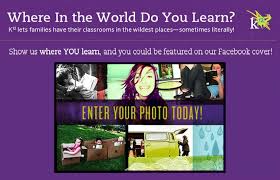 K12’s product line includes courses for elementary, middle, and high school grades, online learning platforms, and educational software. The curriculum is distributed through various channels, including online public and private schools managed by K12, sales to public and private schools and school districts, and sales directly to consumers. The company manages state-funded virtual charter schools and hybrid schools in 29 U.S. states and the District of Columbia. Schools and districts wishing to offer full-time online programs, blended programs, or individual courses can purchase curriculum and training services to implement their own programs. Homeschoolingfamilies or students who wish to supplement their education with an individual course can purchase the curriculum directly.
K12’s product line includes courses for elementary, middle, and high school grades, online learning platforms, and educational software. The curriculum is distributed through various channels, including online public and private schools managed by K12, sales to public and private schools and school districts, and sales directly to consumers. The company manages state-funded virtual charter schools and hybrid schools in 29 U.S. states and the District of Columbia. Schools and districts wishing to offer full-time online programs, blended programs, or individual courses can purchase curriculum and training services to implement their own programs. Homeschoolingfamilies or students who wish to supplement their education with an individual course can purchase the curriculum directly.
Curriculum
In fully online public and private schools, students complete all coursework online, rather than in a brick and mortar classroom. Instruction is facilitated by the “learning coach” (typically a parent or guardian) with the assistance and guidance of a state-certified teacher assigned by the school. Teacher interaction is accomplished through virtual classroom environments, telephone, and face-to-face meetings. In hybrid schools, students complete the same curriculum but attend a physical building and participate in classes with other students and teachers.
The curriculum for grades K–8 focuses on the core subject areas including math, science, language arts, history, art, music, and world languages. A majority of the lessons in the early grades are guided by the learning coach and take place offline using textbooks, printed materials, and hands-on activities.
The high school (grades 9–12) program is broader and students have more choices in terms of the courses they complete. In addition to core courses, students can choose remedial, Honors, Credit Recovery and Advanced Placement options. Unlike in the K-8 grades, high school courses take place mostly online. Students attend live online classes and have more communication with teachers, via e-mail, phone, and online conferences.
Assessment
In elementary and middle school, the curriculum is mastery-based, meaning students must score 80 percent or higher on an assessment before moving on to the next learning objective. Short answer or multiple choice assessments are given at the end of most lessons in K-8 and are administered and recorded by the learning coach. In high school, teachers monitor student’s progress and grade tests and assignments.
Parental Involvement
In elementary school, the learning coach is expected to spend 3–5 hours each day monitoring students’ progress, logging attendance, and facilitating lessons; as the student advances in grade level, the learning coach’s hands-on time is reduced and students work more independently. In high school, the role of the learning coach transitions from direct instruction to providing support as the student is expected to manage his or her own schedule and have more interaction with teachers and other students.
Controversies
The New York Times investigated K12 and concluded that the company squeezes profits from public-school funding by raising enrollment, increasing teacher workload, and lowering standards. The Washington Post raised similar issues.
standards. The Washington Post raised similar issues.
A study at Western Michigan University and the National Education Policy Center found that only a third of K12’s schools achieved Adequate Yearly Progress (AYP), which is required for public schools by the federal NCLB legislation. According to the Times, “By almost every educational measure, the Agora Cyber Charter School [a school run by K12] is failing.” In Pennsylvania, 42% of Agora students tested at grade level or better in math, compared with 75% of students statewide. 52% of Agora students tested at grade level or better in reading, compared with 72% statewide. Nonetheless, Agora brought K12 $72 million in the 2011 school year – more than 10% of K12’s revenue.
Proponents argue that such statistics are undermined by the fact that a significant proportion of newly enrolled students begin several grade levels behind because of an alleged failure of brick and mortar schools. Education reformers such as United States Secretary of Education Arne Duncan, have further stated that AYP is not an accurate measure of a school’s performance and estimated that under NCLB, as many as “82 percent of America’s schools could be labeled ‘failing.’
Some school officials have raised concerns that children’s early development requires social interaction that online schools fail to provide. Proponents of online education say that social interaction is healthier and reflects life better when it takes place in a mixed-age group as found in the after-school activities in which many online students regularly take part.
Operating costs for online programs are generally lower than traditional schools, although the cost per student for an online education program can vary widely, depending on where the school is chartered, where the student lives, and which services are purchased by the school district. On average, online schools receive less in revenue than brick and mortar charter schools and district schools, although in some states, online companies are paid nearly as much money per student as brick and mortar charter schools.
The New York Times wrote that company profits are used to pay for advertising and lobbying state officials. K12 spent $26.5M on advertising in 2010 and the company and its employees contributed nearly $500,000 to state political candidates from 2004 to 2010. K12 has contributed money to organizations like Pennsylvania Families for Public Cyber Schools, which lobbied for online schools. In Ohio, an organization founded by a K12 official hired temp agency workers to demonstrate with signs against state representative Steven Dryer, who challenged their funding.
In 2005, the Philadelphia Board of Education called for the termination of a $3M science curriculum contract with K12 after the company’s co-founder William Bennett, a former U.S. Secretary of Education in the Reagan administration, said, “if you wanted to reduce crime … you could abort every black baby in the country and your crime rate would go down. That would be an impossible, ridiculous, and morally reprehensible thing to do, but your crime rate would go down.” Bennett subsequently resigned from the K12 board and his part-time position with K12. The contract was not revoked, but was not renewed at the end of the contract term. Wikipedia
ARCHIPELAGO LEARNING
Archipelago Learning is an American subscription-based, software-as-a-service provider of education studies used by over 14 million students in nearly 38,700 schools throughout the United States,![]() Canada, and the United Kingdom. Their comprehensive digital supplemental product suite uses technology to transform education. Their goal is to make rigorous learning fun, engaging, accessible, and affordable. The company’s core business, Study Island, provides standards-based instruction, practice, testing and other tools for students in Kindergarten through 12th grade.
Canada, and the United Kingdom. Their comprehensive digital supplemental product suite uses technology to transform education. Their goal is to make rigorous learning fun, engaging, accessible, and affordable. The company’s core business, Study Island, provides standards-based instruction, practice, testing and other tools for students in Kindergarten through 12th grade.
During the 2010-2011 school year, Study Island products were utilized by approximately 11 million students in nearly 23,700 schools in 50 states and 3 Canadian provinces. These students answered over 3.6 billion practice questions.
In April 2009, Archipelago Learning introduced Northstar Learning, which provides instruction, practice, assessment, and test preparation for college and career subject areas through a web-based platform.
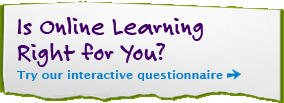 In June 2010, Archipelago Learning acquired EducationCity, which provides an online K-6 educational program that includes instructional content and assessments in language arts, mathematics and science. At the end of 2010, EducationCity was being used by 9,200 schools in the U.K. and 6,000 in the U.S.
In June 2010, Archipelago Learning acquired EducationCity, which provides an online K-6 educational program that includes instructional content and assessments in language arts, mathematics and science. At the end of 2010, EducationCity was being used by 9,200 schools in the U.K. and 6,000 in the U.S.
In August 2010, Archipelago Learning entered an agreement with Blake Publishing and began distributing Reading Eggs in the U.S. and Canada. Reading Eggs is a comprehensive, online supplemental literacy program for students Pre-K to grade 2.
In June 2011, Archipelago Learning purchased Alloy Multimedia, which publishes ESL ReadingSmart. ESL ReadingSmart is an online, standards-based program for English language learners (ELL) targeted toward grades 4-12. The product offers individualized, content-based instruction to develop English language proficiency with emphasis on literacy and academic language development.
Founded in 2000, the company is headquartered in Dallas, Texas and is a publicly held company with the largest shareholder being Providence Equity Partners, a media focused private equity firm. The company went public in November 2009 under the ticker (NASDAQ: ARCL). On May 17, 2012, Archipelago Learning (ARCL) was acquired by PLATO Learning in an all cash deal valued at $291 million. As a result, the stock was delisted.
Business
The company sells a suite of supplemental educational software products.
History
Study Island was founded in May 2000 by Cam Chalmers and Dave Muzzo, originally providing tools related to the Ohio Proficiency Test Program. By 2002, Study Island had expanded to four states, Ohio, North Carolina, New York, and Michigan and serviced 180 schools. Continuing its rapid growth plan, Study Island, which moved its offices to Dallas, Texas added six states in 2003 and expanded its coverage to 750 schools.
In January 2007, Providence Equity Partners and MHT Partners together with co-founders Cameron Chalmers and David Muzzo completed a recapitalization of Study Island in which Archipelago Learning was created to acquire 100% of the outstanding shares of Study Island.
In June 2008, the company acquired TeacherWeb and in August 2009 the company acquired a minority interest in Edline, a private educational technology company. Also, in April 2009, the company launched Northstar Learning, marking its first entry into the postsecondary education market. In October 2009, it launched in Canada.
In November 2009, Archipelago Learning launched a $75 million initial public offering on the NASDAQ under the symbol “ARCL.” It also sold TeacherWeb in November 2009.
In June 2010, it bought EducationCity expanding the company’s school count and portfolio of products in the U.S. and providing an entry point into the U.K. Later that summer the company entered into a distribution agreement with Blake Publishing, and in August 2010 began selling Reading Eggs in the U.S. and Canada.
In June 2011, they acquired Alloy Multimedia, the publisher of ESL ReadingSmart, an English language learning program
Study Island
Study Island, which constitutes the bulk of the company’s revenue and earnings, creates online learning programs for teachers and students which include online tests in K-12 schools across the
 United States and Canada. Study Island develops, sells and supports state and province standards specific online learning software for use in the classroom or at home with an Internet connection in 50 U.S. states, and 3 provinces in Canada (Ontario, Alberta, and British Columbia). Study Island is also involved in developing a series of state-specific Benchmarking products for use in schools in order to allow school administrators to assess their students’ skill level before test taking occurs.
United States and Canada. Study Island develops, sells and supports state and province standards specific online learning software for use in the classroom or at home with an Internet connection in 50 U.S. states, and 3 provinces in Canada (Ontario, Alberta, and British Columbia). Study Island is also involved in developing a series of state-specific Benchmarking products for use in schools in order to allow school administrators to assess their students’ skill level before test taking occurs.
EducationCity
EducationCity is a developer and publisher of online educational learning solutions with offices in Chicago, USA and Rutland, UK. Archipelago acquired EducationCity in June 2010.
READING EGGS
Reading Eggs is a comprehensive, online supplemental literacy program for students Pre-K to grade 2.
ESL ReadingSmart

ESL ReadingSmart is an online, standards-based program for English language learners (ELL) targeted toward grades 4-12. The product offers individualized, content-based instruction to develop English language proficiency with emphasis on literacy and academic language development.
NORTHSTAR LEARNING
Northstar Learning, which was launched in April 2009, uses the same web-based platform as the company’s Study Island products to provide various instruction, assessment and exam preparation content, however focused on the postsecondary educational market.
DISCOVERY EDUCATION
Discovery Education is a division which offers “streaming educational video material into schools via the internet.” Discovery Education operates UnitedStreaming, a “leading educational broadband streaming service in the United States.” In April 2006, Discovery Education acquired a premier assessment company, ThinkLink Learning, which is based in Nashville, Tennessee. Now called Discovery Education Assessment, the program is designed to help students improve on state standardized tests.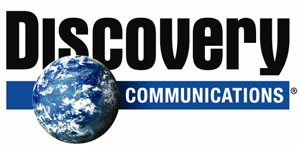
Discovery Education also sells DVD, VHS, CD-ROM, and Multimedia kits with the same content. Other products include COSMEO, an online homework subscription help site, Discovery Health Connection, Discovery Science Connection and they recently purchased other video streaming companies. They have two free services. One is their website, Discovery School and the other is a teacher community, the Discovery Educator Network, commonly referred to as the DEN.
Discovery Education is owned by Discovery Communications, Inc. (DCI) which is an American Global Mass Media and Entertainment Company based in Silver Spring, Maryland. The company started as a single channel in 1985, The Discovery Channel. Today, DCI has global operations offering 28 network entertainment brands on more than 100 channels in more than 180 countries in 39 languages for over 1.5 billion subscribers around the globe.
DCI both produces original television programming and acquires content from producers worldwide. This non-fiction programming is offered through DCI’s 28 network entertainment brands, including Discovery Channel, Military Channel, TLC, Animal Planet, Discovery Fit & Health and a family of digital channels. DCI also distributes BBC America and BBC World News to cable and satellite operators in the United States.
Despite being publicly traded on the NASDAQ stock exchange, the Newhouse family exercises the largest stake in the company, 31%, through privately held Advance Publications. Wikipedia

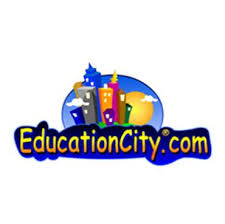
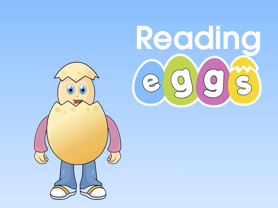
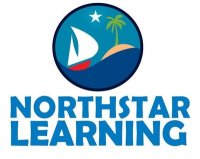
Recent Comments